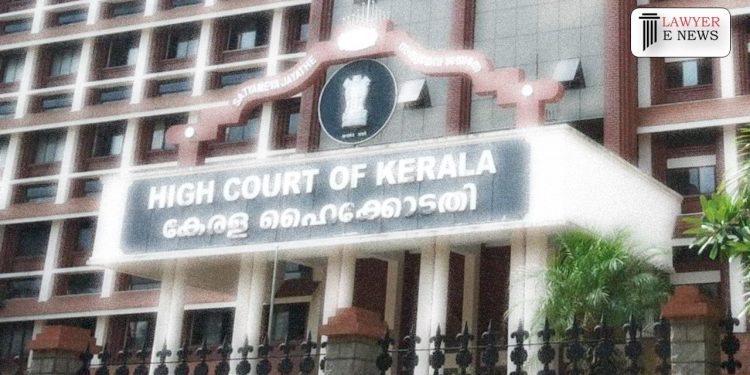-
by Admin
15 February 2026 5:35 AM



Acquittal by Judicial Magistrate of First Class-II, Kollam overturned due to non-compliance with statutory mandates; case remanded for fresh consideration.
The Kerala High Court has overturned an acquittal order issued by the Judicial Magistrate of First Class-II, Kollam, in a criminal case, citing non-compliance with the requirements under Section 258 of the Code of Criminal Procedure (Cr.P.C.). The judgment, delivered by Justice P. Somarajan, emphasizes the necessity for magistrates to record sufficient reasons and meet statutory conditions before stopping proceedings in such cases.
Non-Compliance with Section 258 Cr.P.C.:
The court highlighted that the Judicial Magistrate's decision to acquit the accused under Section 258 Cr.P.C. was made without adherence to the mandated statutory requirements. Justice Somarajan stated, "The stoppage of proceedings under Section 258 Cr.P.C. necessitates recording explicit reasons and ensuring all statutory conditions are met. Failure to comply undermines the legal standards."
Legal Requirements for Stopping Proceedings:
Justice Somarajan elaborated on the legal framework, noting that under Section 258 Cr.P.C., a magistrate may stop proceedings in summons cases only if they are satisfied that the accused cannot be procured within a reasonable time or that the cost of procuring the accused would exceed the maximum fine that can be imposed. "Proper steps to ensure the presence of the accused must be taken, and reasons for stopping proceedings must be clearly recorded," he emphasized.
The court referred to the Division Bench's ruling in Suo Motu v. State of Kerala and Another (2023 KHC OnLine 821), underscoring the necessity for magistrates to scrutinize prosecution reports rigorously. The Division Bench had stated, "The Magistrate must be satisfied that sufficient steps have been taken by the prosecution to ensure the accused's presence and that the costs of securing their presence far exceed the maximum fine prescribed."
Justice Somarajan found that the Judicial Magistrate's order lacked the required scrutiny and compliance with Section 258 Cr.P.C. The court observed, "The Magistrate's decision to stop proceedings without adequately recording reasons and ensuring statutory conditions were met cannot be sustained."
Justice Somarajan remarked, "The exercise of jurisdiction under Section 258 Cr.P.C. requires a thorough examination of the prosecution's efforts and a clear recording of reasons. The absence of such compliance renders the stoppage of proceedings legally untenable."
The Kerala High Court's decision to set aside the Magistrate's order and remand the case for fresh consideration underscores the judiciary's commitment to upholding procedural integrity in criminal proceedings. By emphasizing the need for compliance with statutory requirements, the judgment aims to ensure that the legal process is followed rigorously, thereby reinforcing the standards of justice. This decision is expected to impact future cases, ensuring that magistrates adhere strictly to legal protocols when exercising their powers under Section 258 Cr.P.C.
Date of Decision: 10th June 2024
Suo Motu Proceedings VS State of Kerala '
